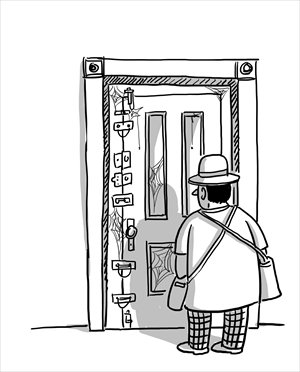Washington alienated by Tokyo rightists

South Korean President Park Geun-hye's rhetoric proved to have an impressive reach on a recent visit to the US. A series of speeches in Washington caused a panic in Japan, far across the Pacific.
The panic stemmed from a declaration at a banquet where Park expressed her willingness to address the North Korea issue in concerted efforts with China and the US after the North suspends its provocations.
When US President Barack Obama mentioned the importance of cooperation among the US, Japan and South Korea at a press conference, Park reiterated that China and Russia had a strong influence upon North Korea. In Tokyo, such speeches were interpreted as deliberately ignoring the role of Japan.
A bigger shock came as a result of Park's address to the US Congress. She criticized the attitudes of the current Japanese government to historical issues, without naming names, saying that if Japan doesn't adopt a "correct" attitude toward history, it would not have a bright future.
Such statements were obviously targeted at the Abe administration's pandering to the right by visiting the Yasukuni Shrine and making controversial remarks about comfort women. Although it was nothing new for South Korea to make such a stance, the background of the statements posed an unprecedented shock to Japan.
Instead of an official state visit, Park visited the US just for work this time. Nevertheless, the US gave her extraordinary treatment, like arranging a speech to the US Congress.
In contrast, Japanese Prime Minister Shinzo Abe has set the strengthening of the Japan-US alliance as a political goal, but during his February visit to Washington, Abe neither received a warm welcome from top US politicians nor got the opportunity to make a speech to the US Congress.
He just delivered an address at the Center for Strategic and International Studies where there were no incumbent senior officials among the audience.
Abe's visit did not earn him any favor in the US public opinion sphere either.
Newspapers including the New York Times and the Washington Post criticized Abe's views when he took an obvious right-wing position on historical issues.
Among these the most severe criticism came from a report entitled "Japan-US Relations: Issues for Congress" issued by the Congressional Research Service (CRS), stating that Abe was a "strong nationalist" and expressing concerns that his speech and behaviors might damage regional relations and US interests.
The domestic atmosphere in the US puts more pressure on Japan than the open and covert attacks from Park do. But perhaps some Japanese politicians have realized they have to find reasons in themselves in order not be isolated by its neighbors and allies.
The Cold War is over, but Japan is still practicing a policy of brinkmanship-lite.
Japan has territorial disputes with China, South Korea and Russia as well as confrontations with China and South Korea.
Furthermore, Japan has been emphasizing conflicts while ignoring economic interests.
Upgrading conflicts with China has brought itself huge losses, and confrontation with Russia has impeded it from getting natural gas from the Far East.
Abe's policies are indulged by the Japanese public, but Park's visit should be another sign that few in the US support Abe.
As the CRS report states, Japan's creating conflicts will damage US interests. East Asia has become a huge investment market for the US, instead of the front line of a cold war.
And even as to the North Korea issue, it appears that the Obama administration plans to tame North Korea with the power of other countries, including China, but not to turn it into another Iraq.
What Abe should do next is try to prompt Japan's neighbors to view it as a partner instead of a troublemaker.
The author is a scholar living in Japan. opinion@globaltimes.com.cn